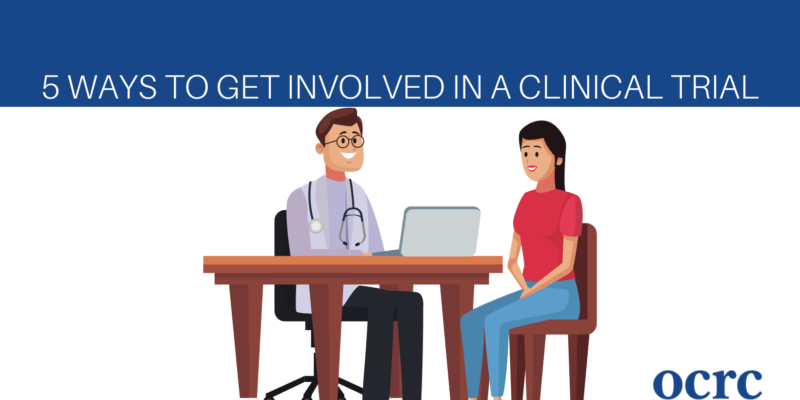
Any and all FDA-approved treatments and medications that exist today are a result of rigorous testing through clinical trials. Many of these studies take several years from concept to completion. Of course, the scientific developments and breakthroughs that occur as a result of clinical research would not be possible without the help of volunteers.
Volunteers are vital to the advancement of health care. Volunteers who participate in clinical trials play an active role in the development of modern medicine. If you are considering participation in a clinical study, read on for more information.
Researchers conduct clinical trials for many diseases and health conditions. If you are looking for a study relating to a specific condition or disease, try an online database to help narrow your search.
Recommended registries include ClinicalTrials.gov, the NIH Clinical Center registry, and CenterWatch.com. Additionally, the NIH has a consolidated list available here.
Many studies end prematurely due to a lack of volunteers. However, registries such as ResearchMatch.org benefit participants and researchers. For instance, a participant can efficiently search and locate studies according to their eligibility.
The National Institutes of Health (NIH) funds ResearchMatch.org. It is safe, free, and user-friendly. Join today to contribute to development and improvement of life-saving treatments and medications.
If there is a particular study that you are interested in joining, connect with individual study staff to ask questions and obtain information specific to your needs and concerns. Inclusion and exclusion criteria such as age, race, gender, medical history varies from study to study. If you’re interested in a study, review the details and contact information on the listing.
To learn more about OCRC’s current clinical studies, don’t hesitate to contact us.
Your doctor and/or community hospital may offer clinical research opportunities. They also may have information regarding local (or even virtual) clinical trials. Additionally, your doctor knows your health and medical history. Regardless of whether you’re healthy or a patient, your doctor can give you individualized insight on available clinical trials based on eligibility.
While volunteers are a crucial component of any clinical trial, many people work behind the scenes. If you’re intrigued by the planning surrounding studies, you may also want to consider a career in clinical research.
Researchers are currently studying various treatments and conditions. Subsequently, there are several types of trials and areas of work. For example, Clinical Research Scientist; Data Manager; Quality Assurance Auditor; Medical Writer; Biostatistician; and Clinical Safety Analyst, to name a few.
To begin, you can pursue an undergraduate degree in the science field. Depending on your path, you may also need a master’s degree, M.D., or Ph.D. If a clinical research career seems like the right fit for you, reach out to others in the field to learn more.
For those in Florida who are interested in joining a clinical trial, check out our previous blog: Eight Different Paid Clinical Trials in Florida.
